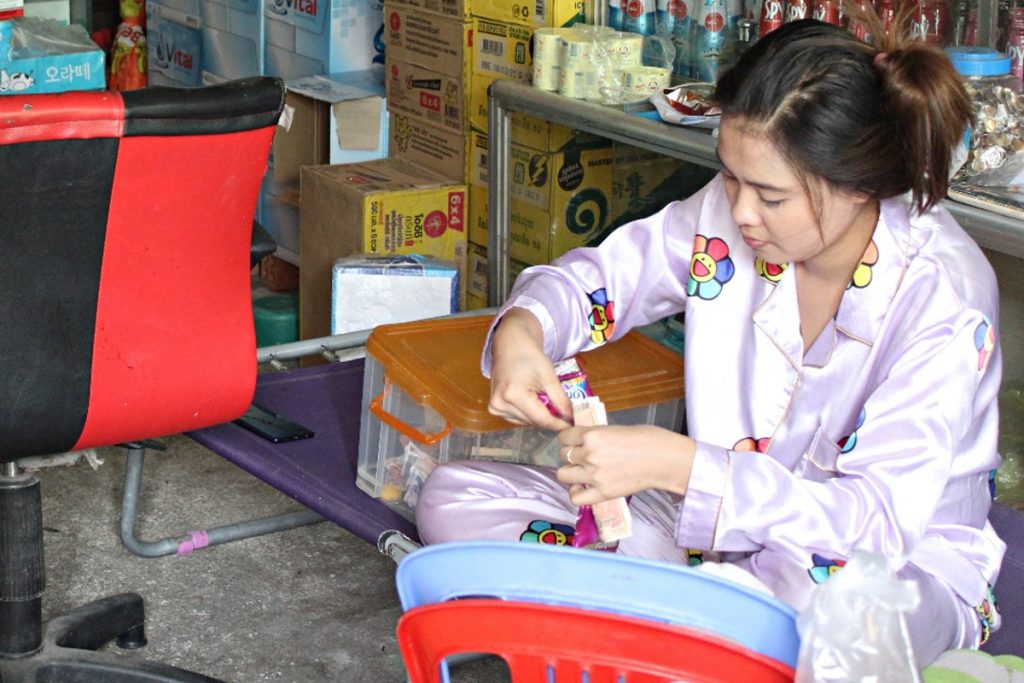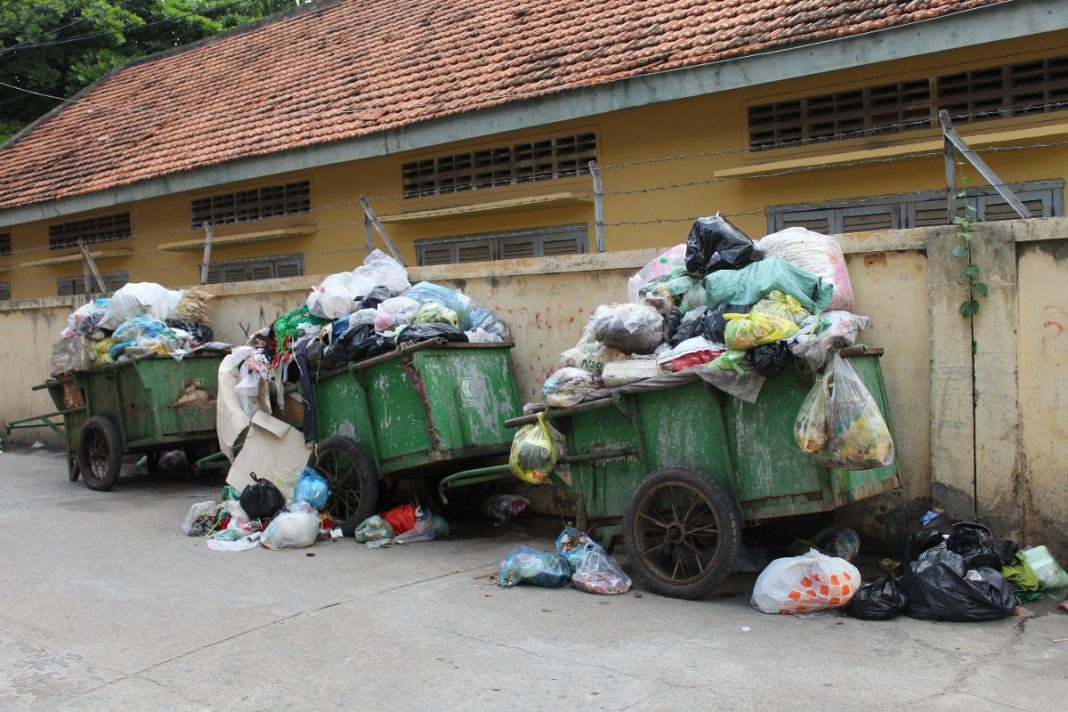On the road bordering Meanchey district’s Phum Russey Primary School, motorbike drivers cover their mouths against the intense smell of garbage, and residents say they have difficulty breathing.
“It’s such a bad smell … when walking or even riding a motorbike we need to cover our mouths and we can’t breathe for a while,” said Mao Sarin, an accountant living on the street in Stung Meanchey 2 commune.
The road has two primary schools as well as several factories and rental accommodations. Trash bags pile up on and all around garbage carts left near the entrance of the street.
Sarin said Phnom Penh trash collection company Cintri came to pick up the garbage only two to three times a week, on an irregular schedule. Meanwhile, neighbors — he said he did not know exactly who — left their trash scattered everywhere.
“It’s hard for every factory worker and young child when they walk on this road,” he said. The mess had been going on for three years already, he added.
Rotana Brayut, who was recently driving his motorbike down the street, said he rarely used the road because when he rode with his daughter she would complain about difficulties breathing.
“Especially now that it’s rainy season … it’s really hard,” Brayut said.
Sung Sovan, a vendor living opposite Sarin, put the blame squarely on her neighbors.

“The company collecting the garbage is good, but the issue is some people do not understand about littering,” she said. Residents put their trash all over the road when the carts were full, she said.
Cintri’s chief of Meanchey district garbage collection, Khun Samphors, also said residents were at fault, though he argued that local authorities should do more to help.
Cintri wants people to leave trash outside their houses rather than along the school wall, and at one point it removed the garbage carts there to encourage the behavior, he said.
But residents just left their trash on the ground where the carts used to be, so the company brought them back, Samphors said.
“It’s their habit,” he said. “We can remove the carts from the street again if authorities will be there to cooperate. The authorities must wait and stop people from throwing rubbish there.”
Commune chief Touch Sam Ol, however, said the smell was Cintri’s failure. Residents had no other option than to put their garbage around the provided carts because many lived down small lanes where garbage trucks could not go.
As a result, the trash was left rotting on the street for days, he said.
“I have reported this to the garbage company and I have prepared a letter for Cintri, but I haven’t seen anyone come to take it,” Sam Ol said.
City Hall spokesman Meth Measpheakdey said the city was aware of garbage collection issues around Phnom Penh. City Hall apologized to citizens while it took bids to have three more companies help Cintri with the work, he said.
Irina Chakraborty, a Phnom Penh eco-businesswoman with a background in environmental engineering, said organic solids and liquids could cause bad smells even after the waste was collected, and residents should clean the street if they wanted the smell to go away.
The smell from improperly disposed garbage could cause headaches, she said, and recommended composting either by households or at the municipal level.
According to the Environment Ministry, Phnom Penh produces 3,000 tons of garbage every day, and officials have suggested subsidies for recyclers similar to neighboring countries to try to combat the problem.












